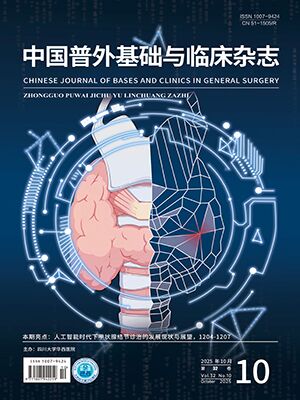| 1. |
Elke G, van Zanten AR, Lemieux M, et al. Enteral versus parenteral nutrition in critically ill patients: an updated systematic review and meta-analysis of randomized controlled trials. Crit Care, 2016, 20(1): 117. doi: 10.1186/s13054-016-1298-1.
|
| 2. |
Preiser JC, Arabi YM, Berger MM, et al. A guide to enteral nutrition in intensive care units: 10 expert tips for the daily practice. Crit Care, 2021, 25(1): 424. doi: 10.1186/s13054-021-03847-4.
|
| 3. |
Compher C, Bingham AL, McCall M, et al. Guidelines for the provision of nutrition support therapy in the adult critically ill patient: The American Society for Parenteral and Enteral Nutrition. JPEN J Parenter Enteral Nutr, 2022, 46(1): 12-41.
|
| 4. |
Heyland DK, Weijs PJ, Coss-Bu JA, et al. Protein delivery in the intensive care unit: Optimal or suboptimal?. Nutr Clin Pract, 2017, 32(1_suppl): 58S-71S. doi: 10.1177/0884533617691244.
|
| 5. |
徐颖, 梁培, 虞文魁, 等. 早期足量蛋白质摄入对重症患者结局的影响. 中华临床营养杂志, 2019, 27(3): 133-137.
|
| 6. |
Heyland DK, Patel J, Compher C, et al. The effect of higher protein dosing in critically ill patients with high nutritional risk (EFFORT Protein): an international, multicentre, pragmatic, registry-based randomised trial. Lancet, 2023, 401(10376): 568-576.
|
| 7. |
林佳佳, 李维勤, 于凯江. 推动危重症患者肠内营养的规范化实施. 中华重症医学电子杂志(网络版), 2020, 6(4): 357-360.
|
| 8. |
倪平, 陈京立, 刘娜. 护理研究中量性研究的样本量估计. 中华护理杂志, 2010, 45(4): 378-380.
|
| 9. |
王沈华, 张茂. 危重症患者静脉使用胰岛素控制高血糖指南. 中华急诊医学杂志, 2013, 22(8): 838-839.
|
| 10. |
Iwashyna TJ, Deane AM. Individualizing endpoints in randomized clinical trials to better inform individual patient care: the TARGET proposal. Crit Care, 2016, 20(1): 218. doi: 10.1186/s13054-016-1388-0.
|
| 11. |
Summers MJ, Chapple LA, McClave SA, et al. Event-rate and delta inflation when evaluating mortality as a primary outcome from randomized controlled trials of nutritional interventions during critical illness: a systematic review. Am J Clin Nutr, 2016, 103(4): 1083-1090.
|
| 12. |
Ferrie S, Allman-Farinelli M, Daley M, et al. Protein requirements in the critically ill: A randomized controlled trial using parenteral nutrition. JPEN J Parenter Enteral Nutr, 2016, 40(6): 795-805.
|
| 13. |
Singer P, Blaser AR, Berger MM, et al. ESPEN practical and partially revised guideline: Clinical nutrition in the intensive care unit. Clin Nutr, 2023, 42(9): 1671-1689.
|
| 14. |
Karamanlis A, Chaikomin R, Doran S, et al. Effects of protein on glycemic and incretin responses and gastric emptying after oral glucose in healthy subjects. Am J Clin Nutr, 2007, 86(5): 1364-1368.
|
| 15. |
程相超, 袁启东, 赵建红. 重症急性胰腺炎患者实施肠内营养支持治疗对免疫及营养状态指标的影响. 中国普外基础与临床杂志, 2019, 26(9): 1067-1071.
|
| 16. |
Li J, Wang L, Zhang H, et al. Different definitions of feeding intolerance and their associations with outcomes of critically ill adults receiving enteral nutrition: a systematic review and meta-analysis. J Intensive Care, 2023, 11(1): 29. doi: 10.1186/s40560-023-00674-3.
|
| 17. |
Aarsland D, Batzu L, Halliday GM, et al. Parkinson disease-associated cognitive impairment. Nat Rev Dis Primers, 2021, 7(1): 47. doi: 10.1038/s41572-021-00280-3.
|
| 18. |
Martin CM, Doig GS, Heyland DK, et al. Multicentre, cluster-randomized clinical trial of algorithms for critical-care enteral and parenteral therapy (ACCEPT). CMAJ, 2004, 170(2): 197-204.
|
| 19. |
Doig GS, Simpson F, Finfer S, et al. Effect of evidence-based feeding guidelines on mortality of critically ill adults: a cluster randomized controlled trial. JAMA, 2008, 300(23): 2731-2741.
|
| 20. |
Barrocas A, Schwartz DB, Bistrian BR, et al. Nutrition support teams: Institution, evolution, and innovation. Nutr Clin Pract, 2023, 38(1): 10-26.
|
| 21. |
李阳洋, 邵小平, 蒋卓娟, 等. 早期肠内营养集束化喂养方案对重症患者营养热卡达标率及喂养不耐受的效果研究. 军事护理, 2022, 39(9): 41-44, 52.
|
| 22. |
Heyland DK, Murch L, Cahill N, et al. Enhanced protein-energy provision via the enteral route feeding protocol in critically ill patients: results of a cluster randomized trial. Crit Care Med, 2013, 41(12): 2743-2753.
|
| 23. |
叶佩玲, 袁星竹, 刘常清, 等. 胃癌患者术后肠内营养不耐受预防及处理措施的研究进展. 中国普外基础与临床杂志, 2024, 31(12): 1522-1527.
|




